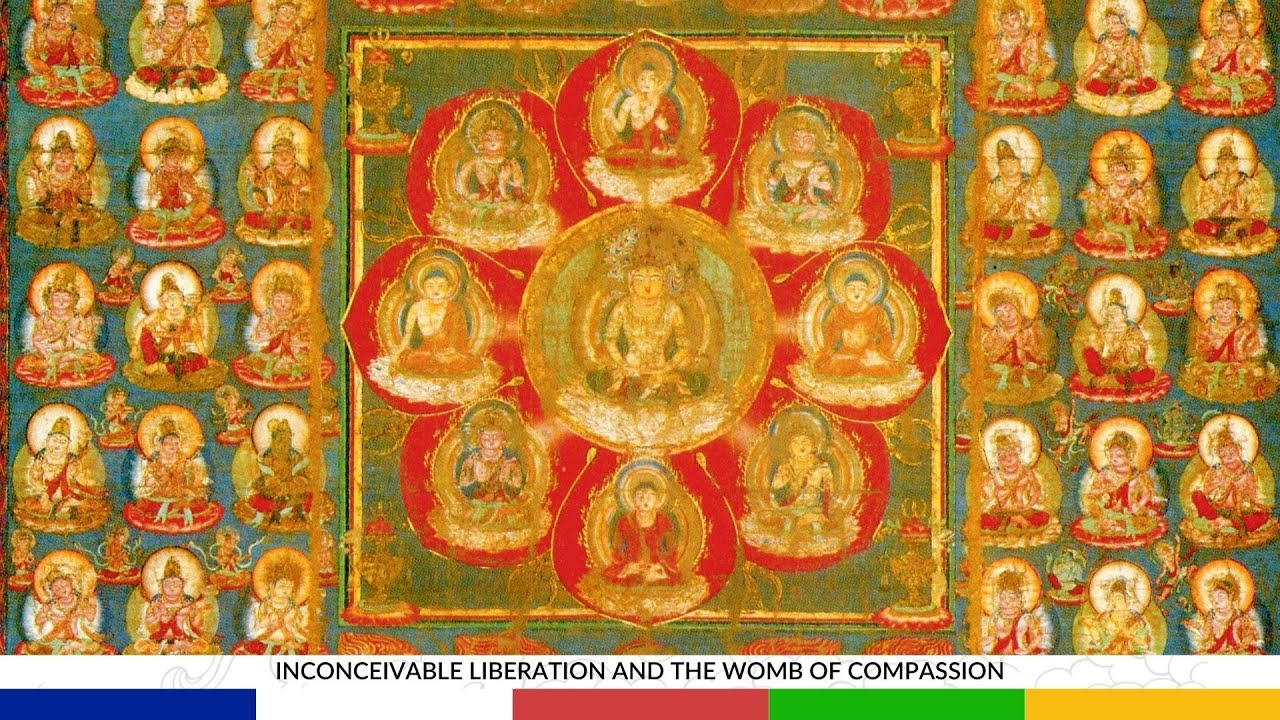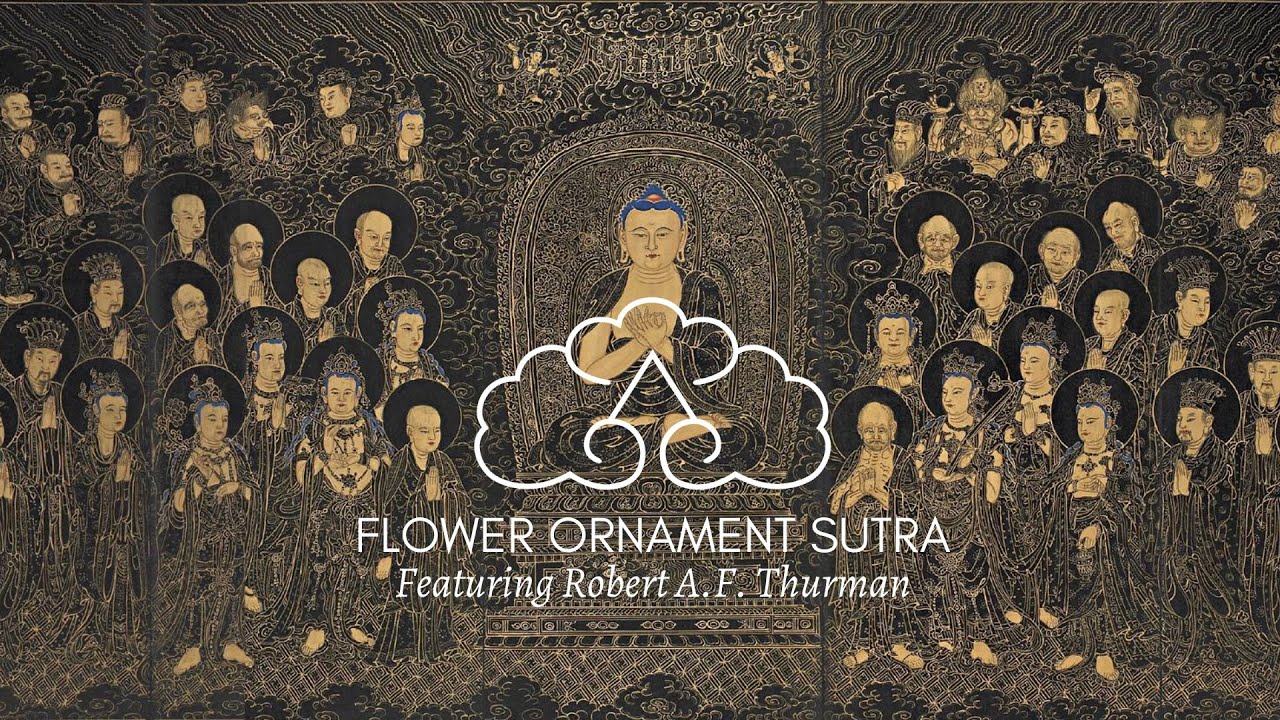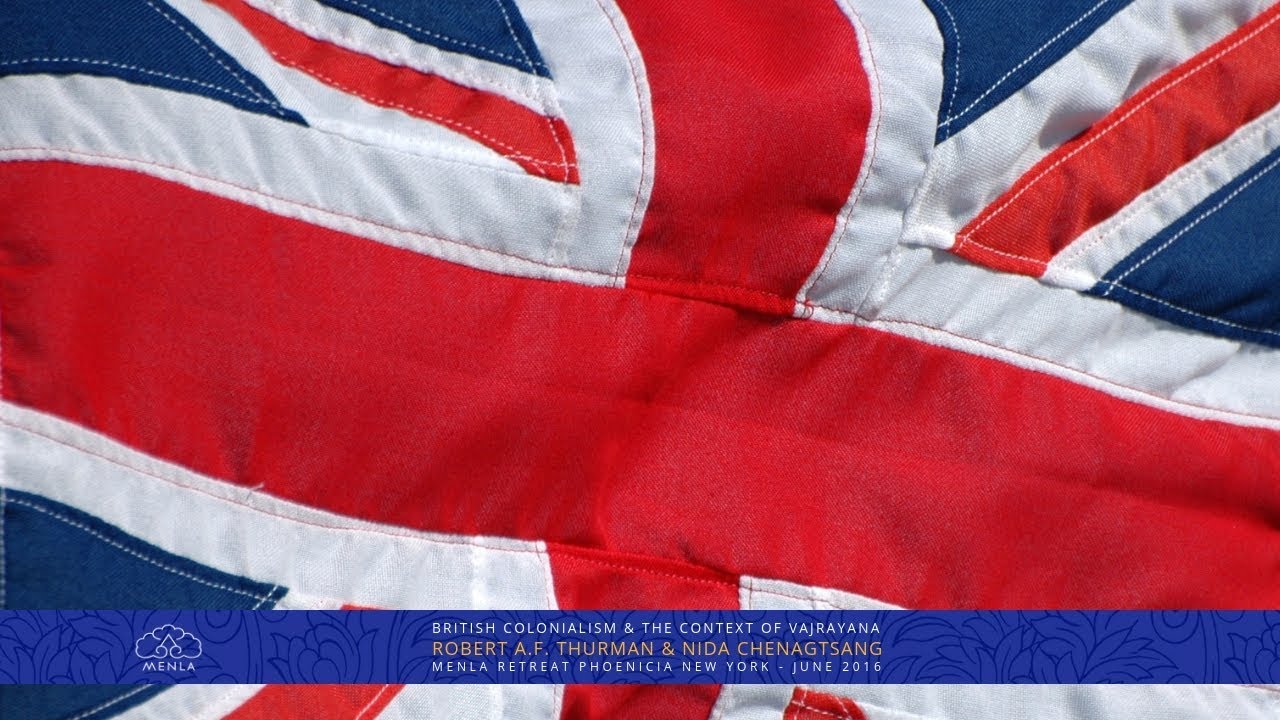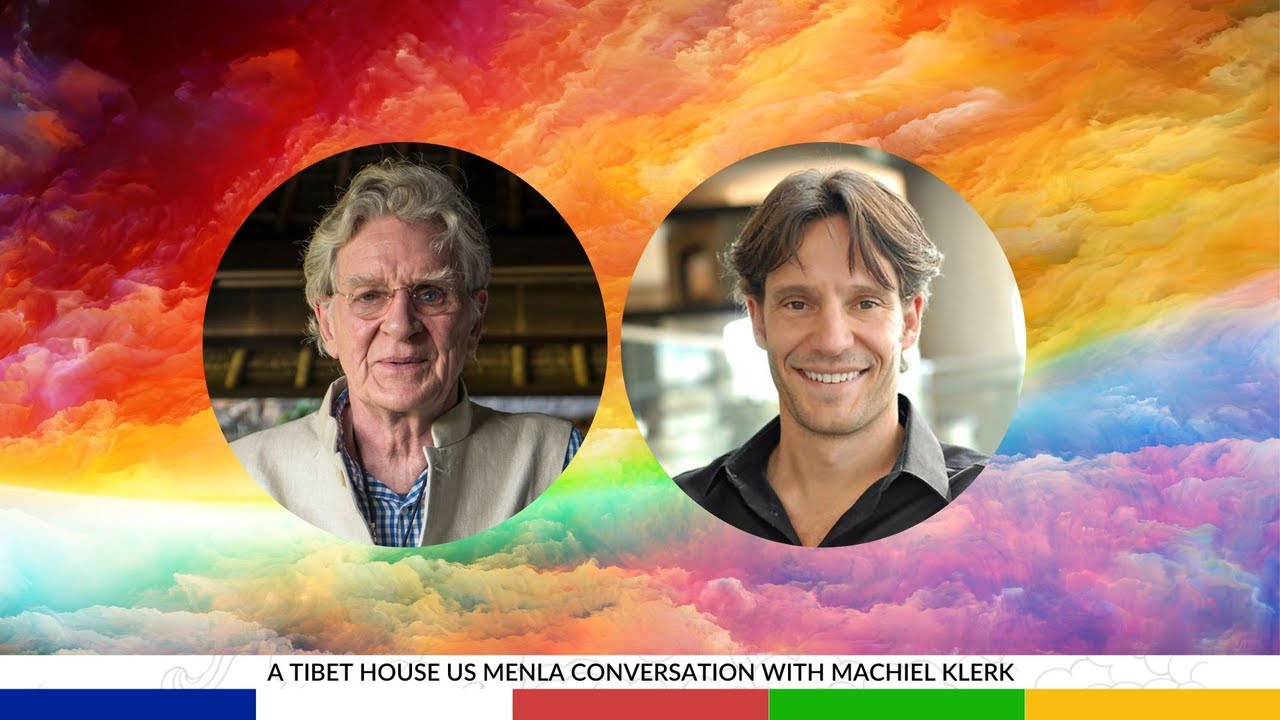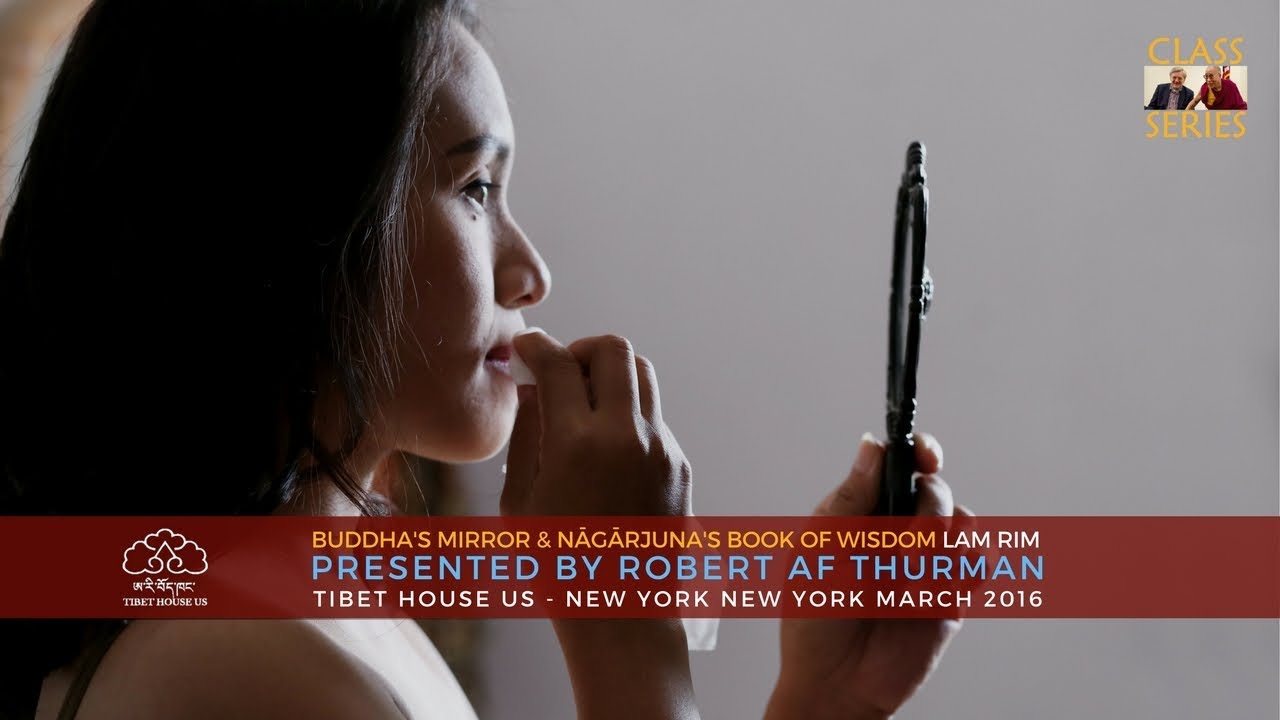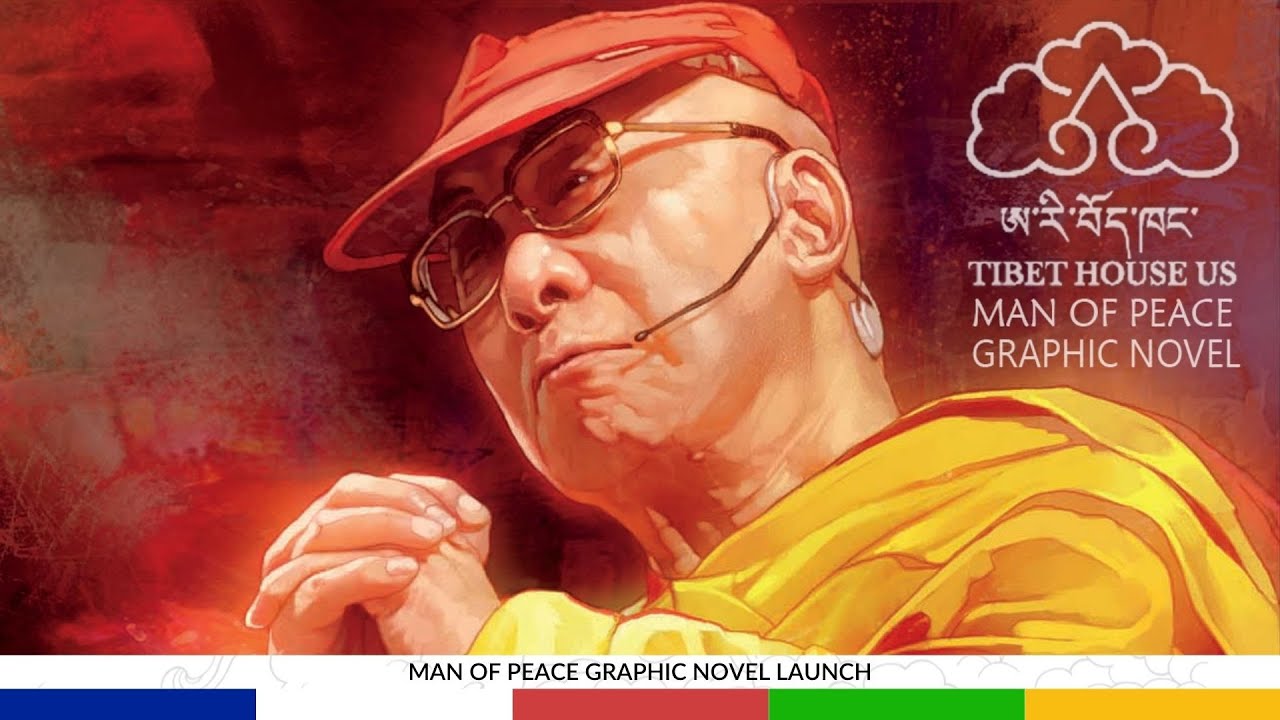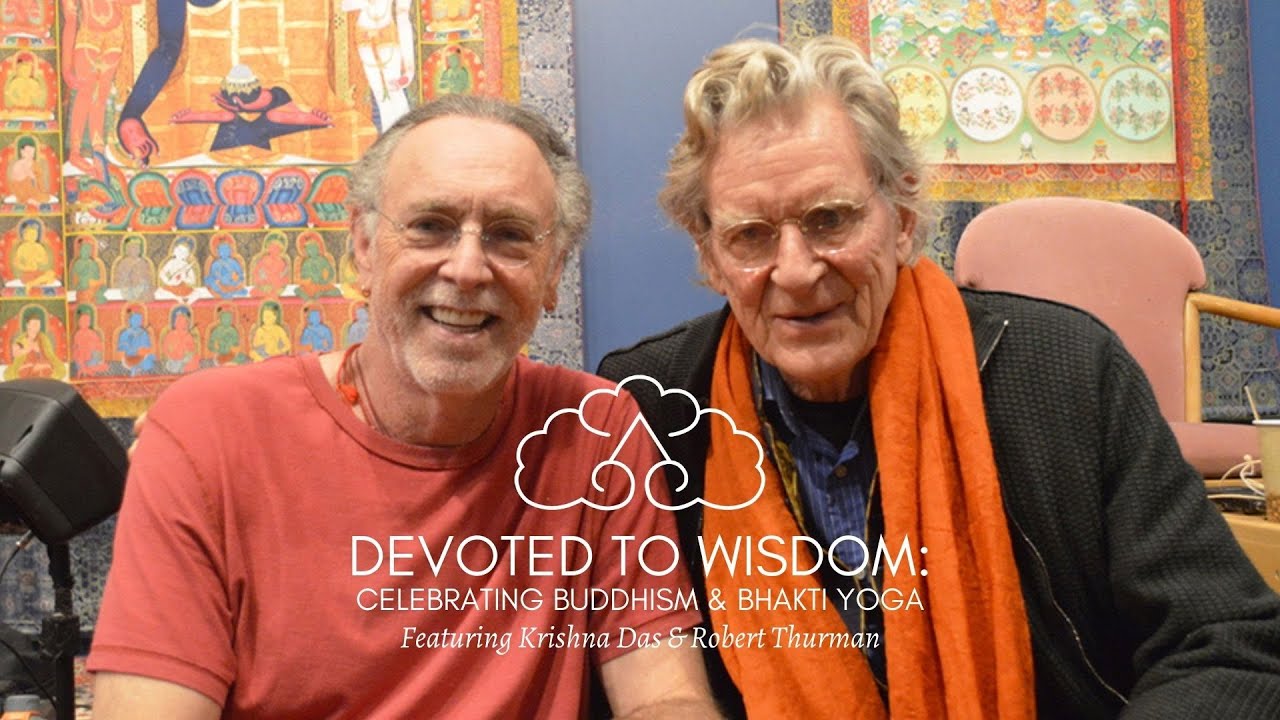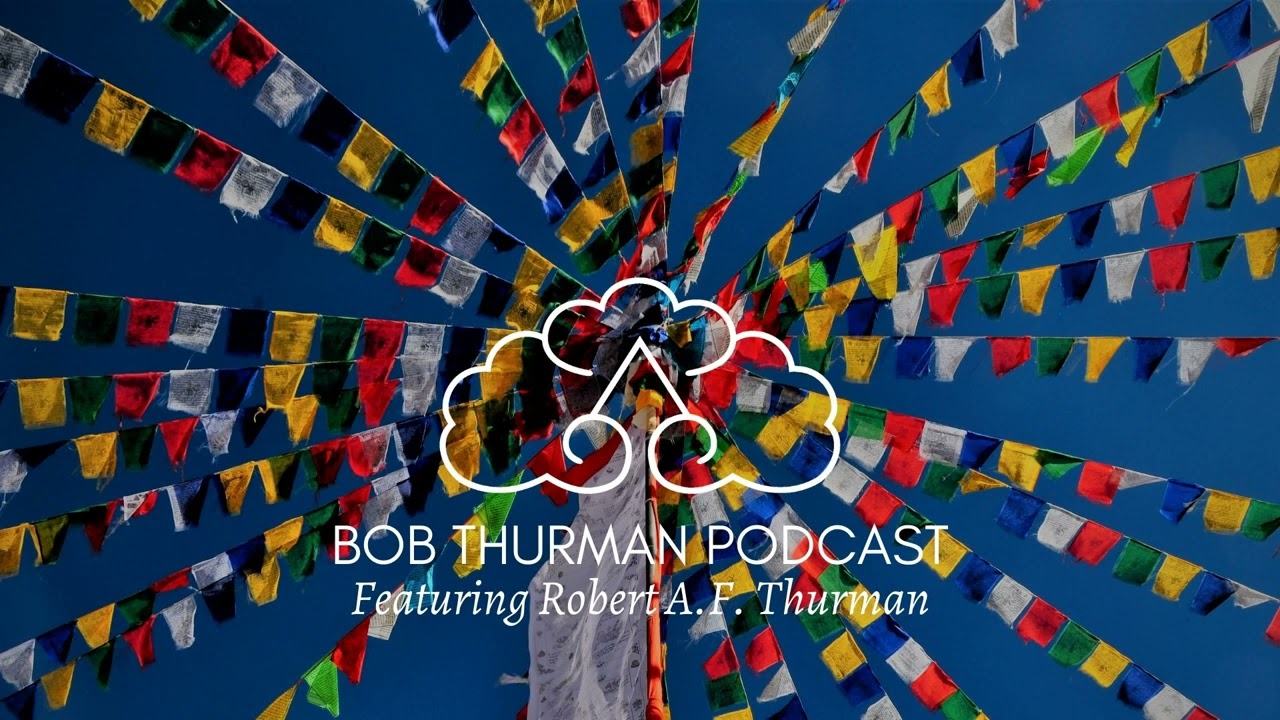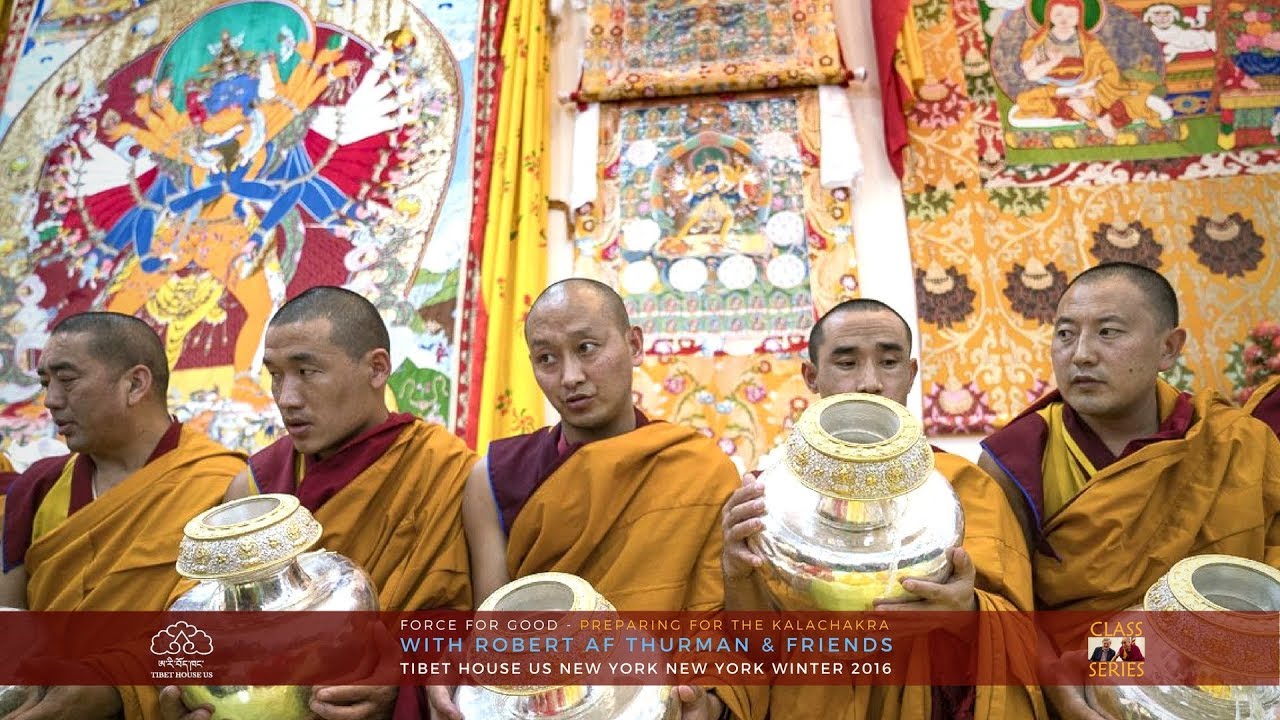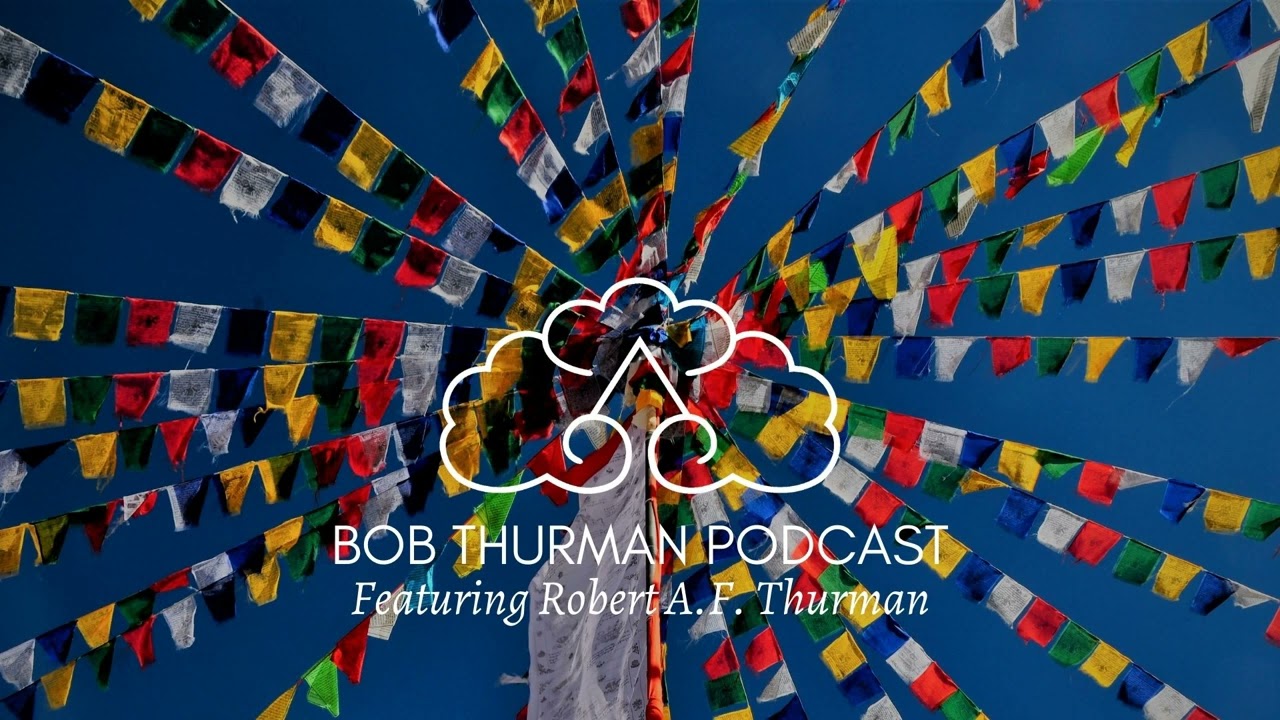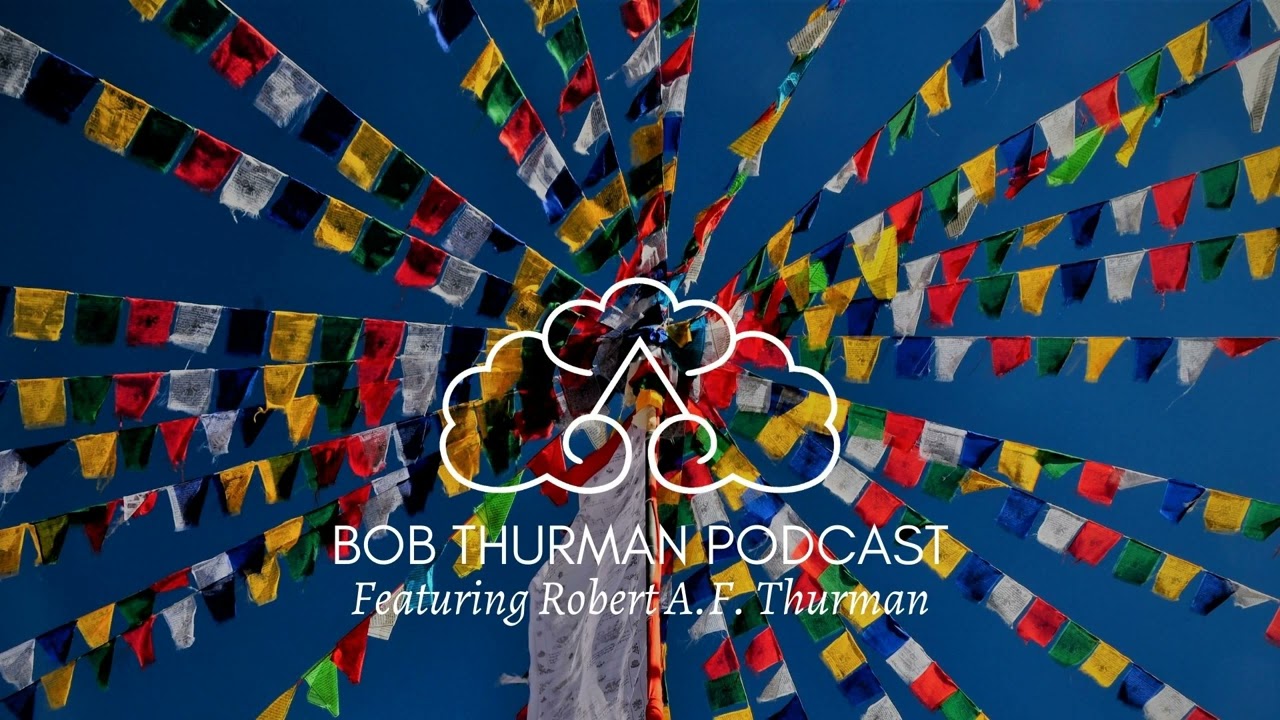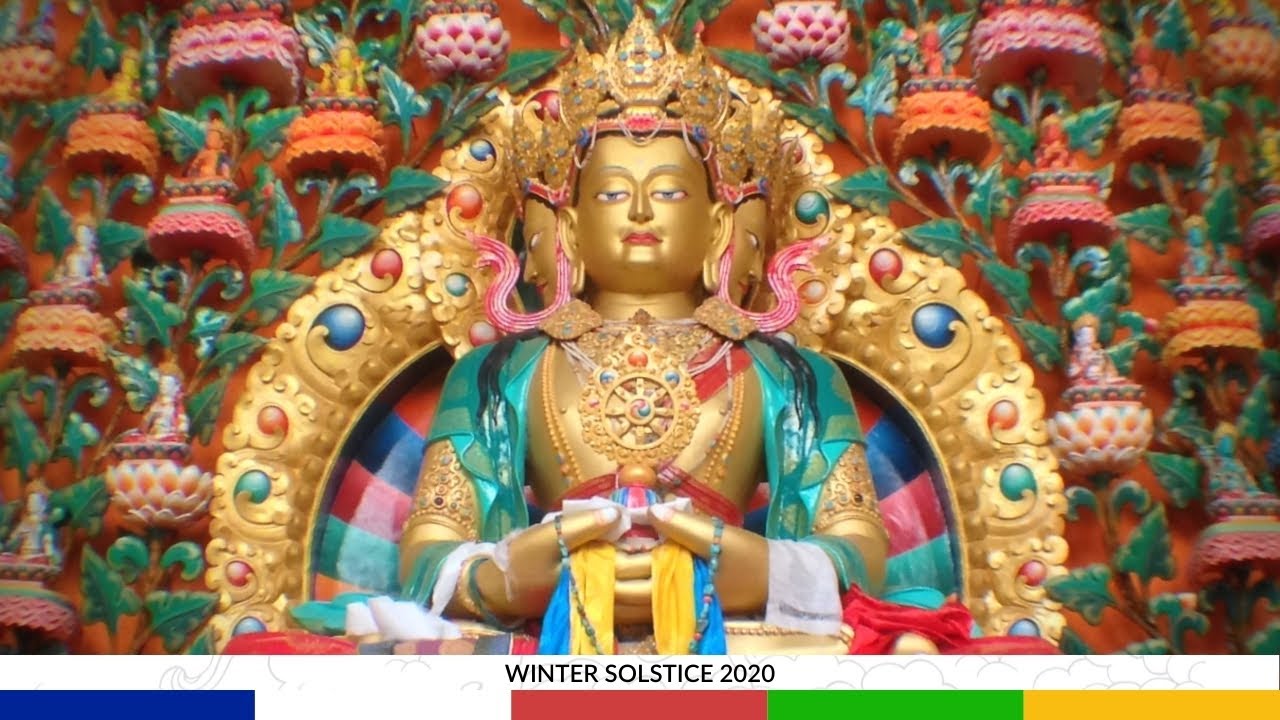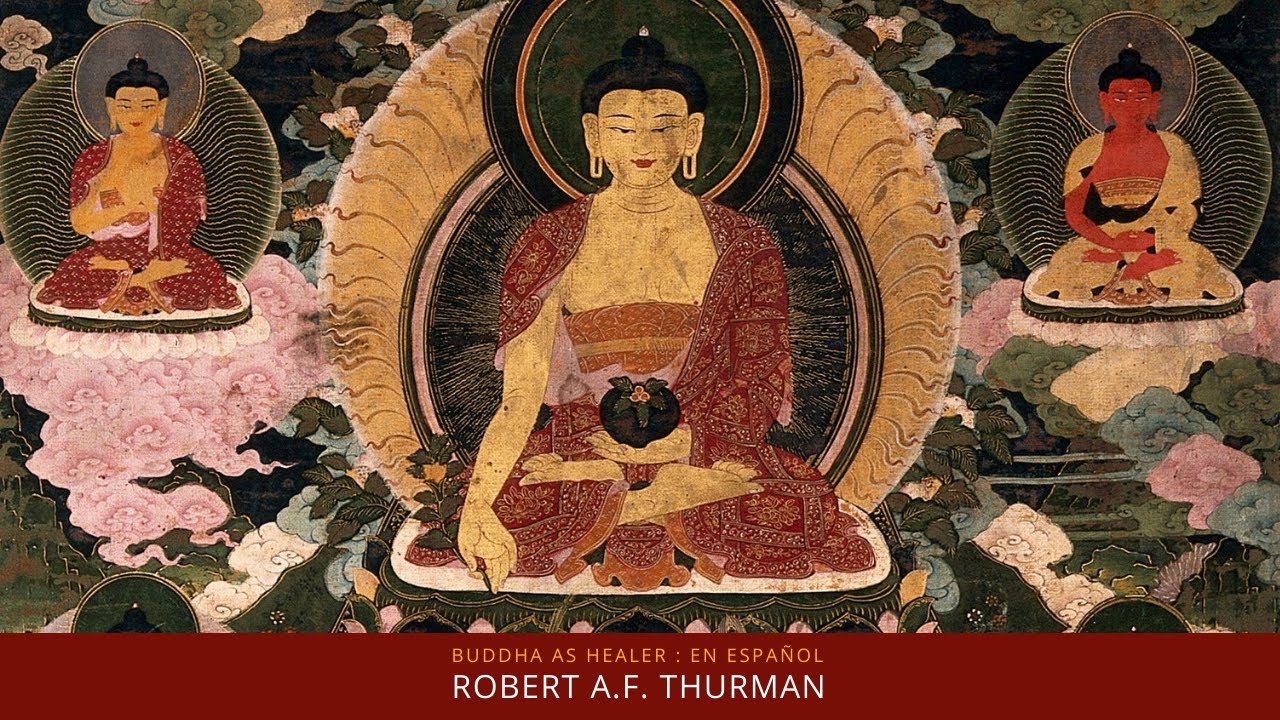Standing at the Edge: Finding Freedom Where Fear and Courage Meet Book Recommendation by Robert A.F. Thurman
In this short video Tibet House US President Robert AF Thurman gives a book review of Roshi Joan Halifax’s book “Standing At The Edge.”
It’s well documented in the neuroscience literature that meditators have more mental plasticity and less stickiness (i.e., when thoughts “stick” or perseverate inside the mind) than non-meditators.
Meditation practice, along with an unselfish motivation, can enhance our ability to sense into our own subjective experience and the experience of others (empathy), yet to let go of thoughts and emotions more easily by automatically down-regulating our emotional response, and seeing things afresh.
If we can try to emulate His Holiness’s ability to quickly shift mental states—a skill we can cultivate through meditation—we will be less prone to falling over the edge into empathic distress.
This mental flexibility supports us in making space internally as we encounter the suffering of another, and also to stay clear about the distinction between self and other. In our meditation practice, we learn to observe the thoughts, feelings, and sensations gliding and bumping through our subjective experience. The more skilled we are in not identifying with these experiences, but simply observing them, the more we can avoid falling victim to the suffering of others.
If we fall over the edge, and we will sometimes, all is not lost. Empathic distress might serve as an instigating force that pushes us into compassionate action to end the suffering of others and ourselves.
From Standing At The Edge: Finding Freedom Where Fear and Courage Meet.
Joan Halifax has enriched thousands of lives around the world through her work as a humanitarian, a social activist, an anthropologist, and as a Buddhist teacher. Over many decades, she has also collaborated with neuroscientists, clinicians, and psychologists to understand how contemplative practice can be a vehicle for social transformation. Through her unusual background, she developed an understanding of how our greatest challenges can become the most valuable source of our wisdom—and how we can transform our experience of suffering into the power of compassion for the benefit of others.
Halifax has identified five psychological territories she calls Edge States—altruism, empathy, integrity, respect, and engagement—that epitomize strength of character. Yet each of these states can also be the cause of personal and social suffering. In this way, these five psychological experiences form edges, and it is only when we stand at these edges that we become open to the full range of our human experience and discover who we really are.
Recounting the experiences of caregivers, activists, humanitarians, politicians, parents, and teachers, incorporating the wisdom of Zen traditions and mindfulness practices, and rooted in Halifax’s groundbreaking research on compassion, Standing at the Edge is destined to become a contemporary classic. A powerful guide on how to find the freedom we seek for others and ourselves, it is a book that will serve us all.
To watch videos from past teachings with Joan Halifax at the Newark Peace Summit please visit www.tibethouse.us.
About Joan Halifax Ph.D.
Roshi Joan Halifax, Ph.D., is a Buddhist teacher, Zen priest and anthropologist. She is Founder, Abbot, and Head Teacher of Upaya Institute and Zen Center in Santa Fe, New Mexico. She received her Ph.D. in medical anthropology and received a National Science Foundation Fellowship in Visual Anthropology, was an Honorary Research Fellow in Medical Ethnobotany at Harvard University, and was a Distinguished Visiting Scholar at the Library of Congress. She is the founder of the Upaya Prison Project and of the Nomads Clinic in Nepal.
Connect with Joan Halifax Ph.D.
About Robert AF Thurman
Suggested Books & Audio by Robert AF Thurman:
Man of Peace: Illustrated Life Story of Tibet’s Dalai Lama (Book), Infinite Life: Awakening to Bliss Within (Book), Anger: The Seven Deadly Sins (Book), Inner Revolution (Book), Circling the Sacred Mountain : A Spiritual Adventure Through the Himalayas (Book), Essential Tibetan Buddhism (Book), The Tibetan Book of the Dead: The Great Book of Natural Liberation Through Understanding in the Between (Book) The Jewel Tree of Tibet: The Enlightenment Engine of Tibetan Buddhism (Book), The Central Philosophy of Tibet (Book), The Holy Teaching of Vimalakirti: A Mahayana Scripture (Book), Life & Teachings of Tsong Khapa (Book), Why the Dalai Lama Matters: His Act of Truth as the Solution for China, Tibet, and the World (Book) & Liberation Upon Hearing in the Between: Living with the Tibetan Book of the Dead (Audio).


